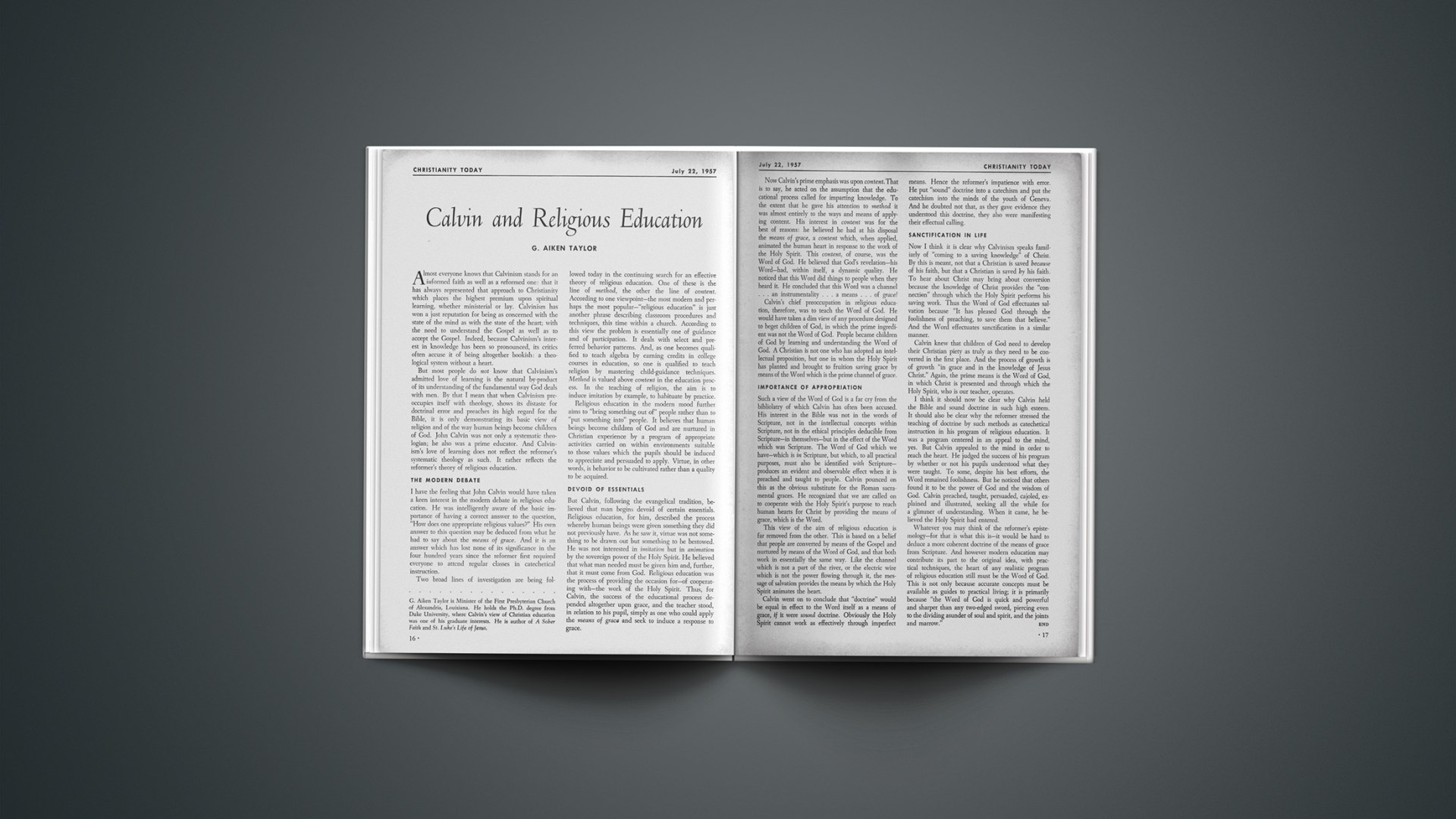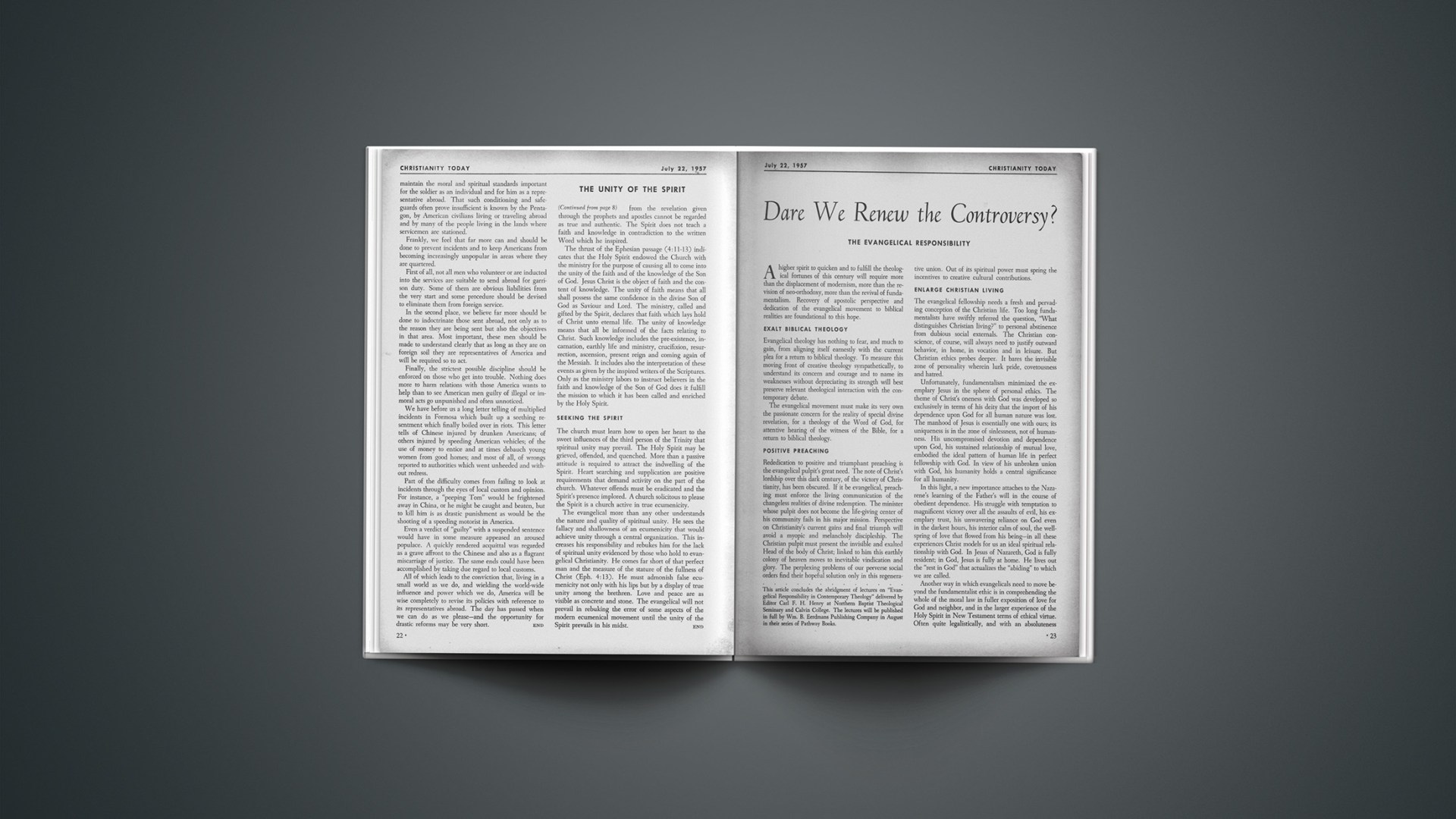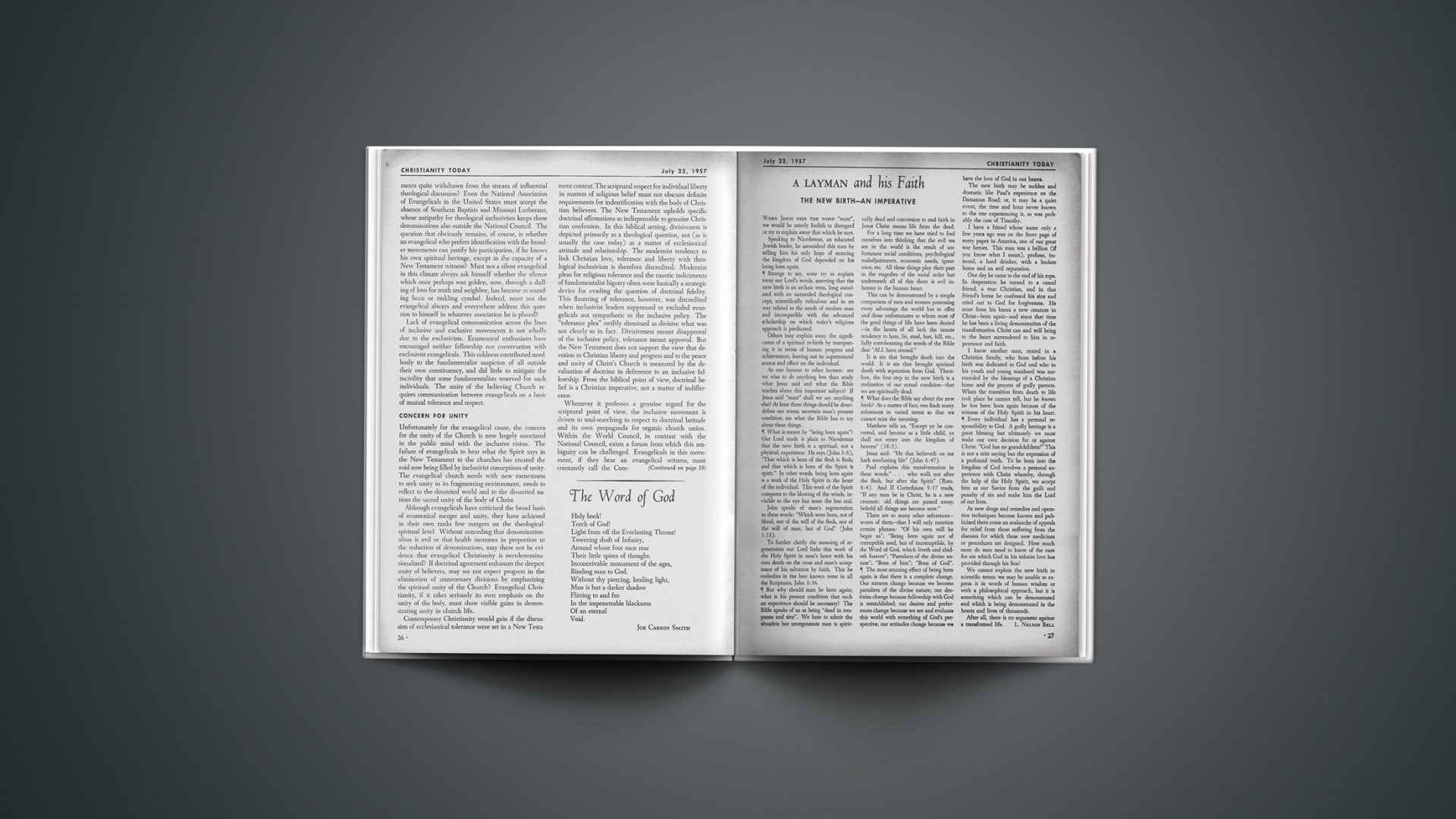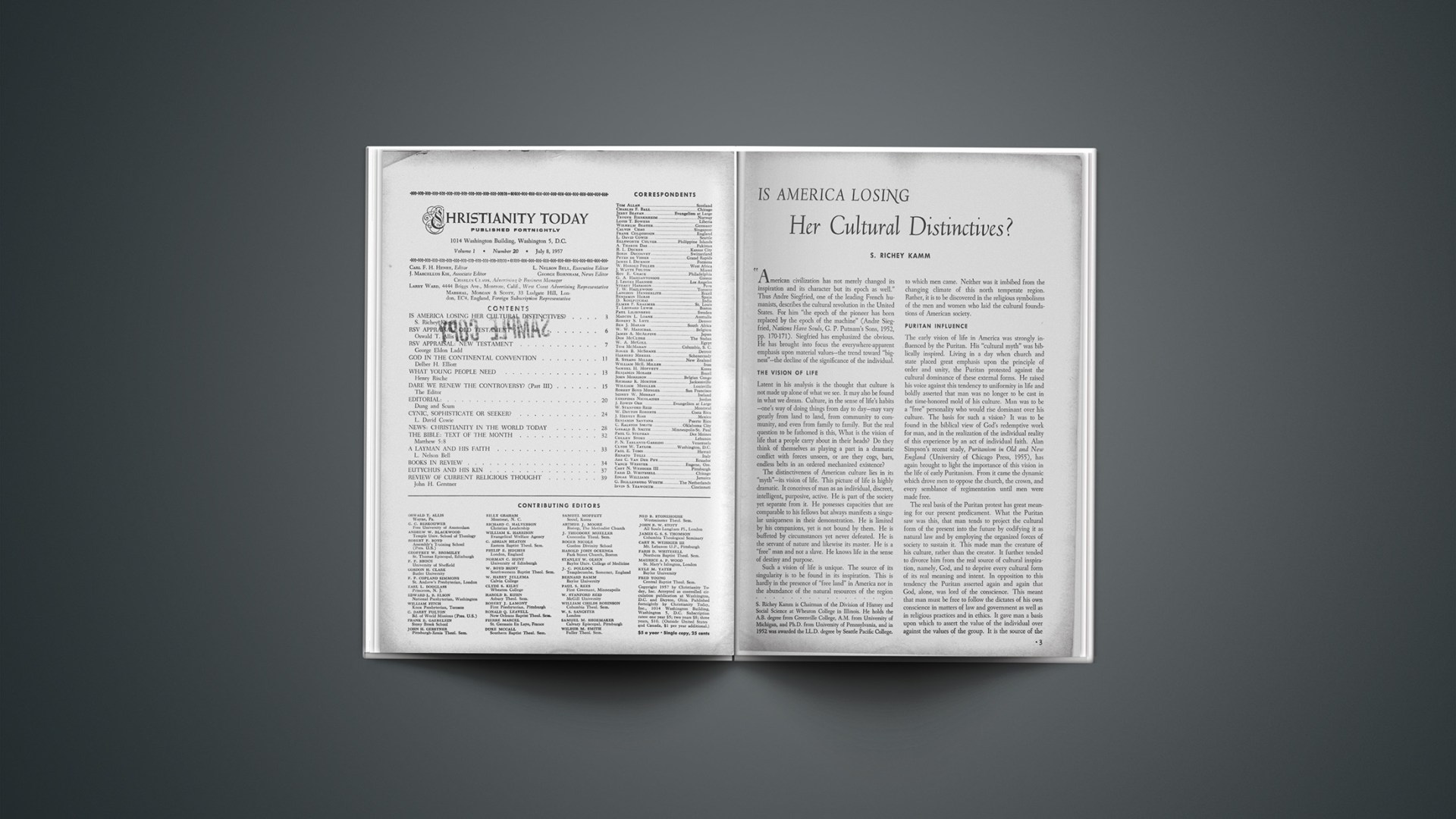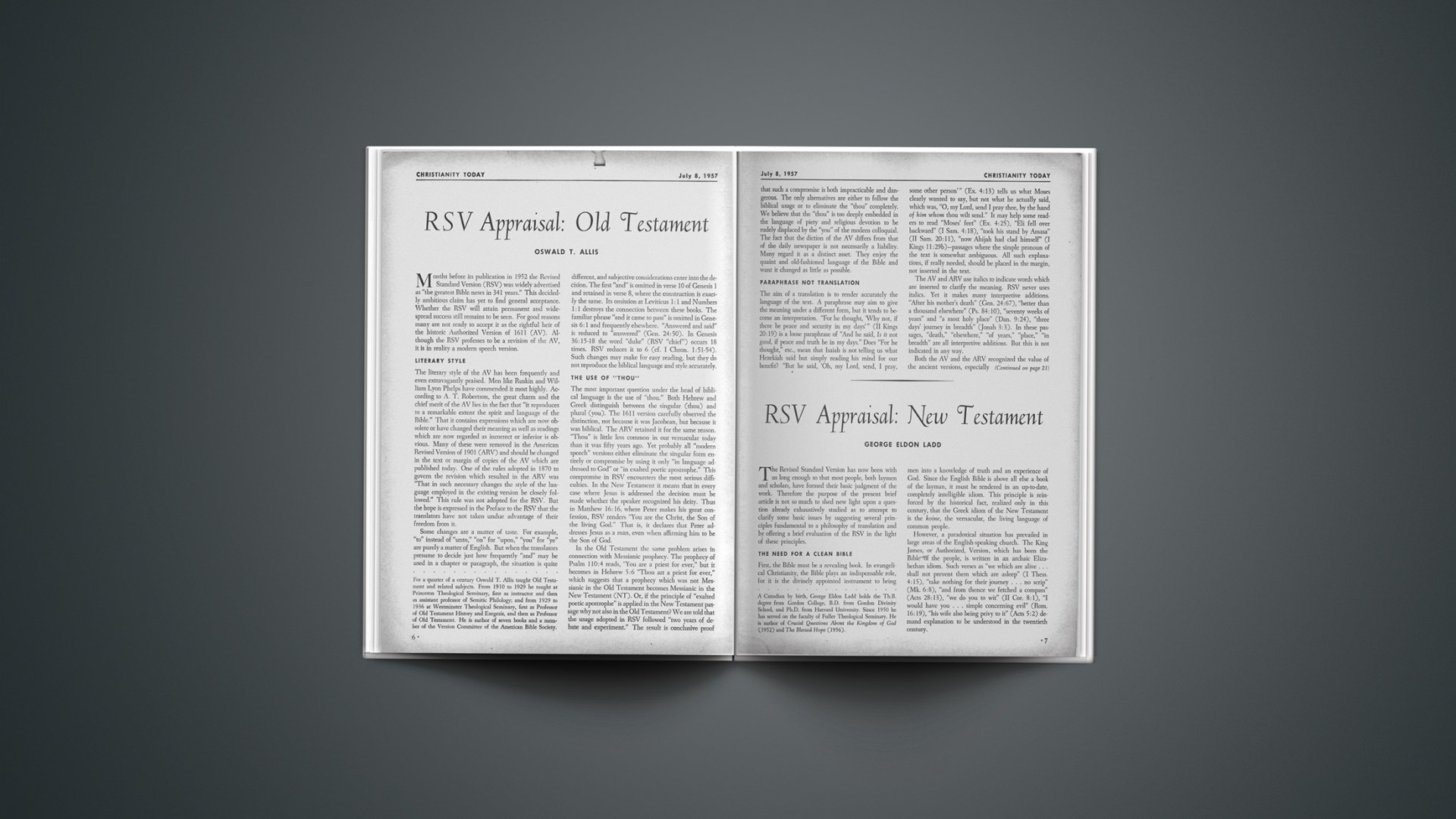Almost everyone knows that Calvinism stands for an informed faith as well as a reformed one: that it has always represented that approach to Christianity which places the highest premium upon spiritual learning, whether ministerial or lay. Calvinism has won a just reputation for being as concerned with the state of the mind as with the state of the heart; with the need to understand the Gospel as well as to accept the Gospel. Indeed, because Calvinism’s interest in knowledge has been so pronounced, its critics often accuse it of being altogether bookish: a theological system without a heart.
But most people do not know that Calvinism’s admitted love of learning is the natural by-product of its understanding of the fundamental way God deals with men. By that I mean that when Calvinism preoccupies itself with theology, shows its distaste for doctrinal error and preaches its high regard for the Bible, it is only demonstrating its basic view of religion and of the way human beings become children of God. John Calvin was not only a systematic theologian; he also was a prime educator. And Calvinism’s love of learning does not reflect the reformer’s systematic theology as such. It rather reflects the reformer’s theory of religious education.
The Modern Debate
I have the feeling that John Calvin would have taken a keen interest in the modern debate in religious education. He was intelligently aware of the basic importance of having a correct answer to the question, “How does one appropriate religious values?” His own answer to this question may be deduced from what he had to say about the means of grace. And it is an answer which has lost none of its significance in the four hundred years since the reformer first required everyone to attend regular classes in catechetical instruction.
Two broad lines of investigation are being followed today in the continuing search for an effective theory of religious education. One of these is the line of method, the other the line of content. According to one viewpoint—the most modern and perhaps the most popular—“religious education” is just another phrase describing classroom procedures and techniques, this time within a church. According to this view the problem is essentially one of guidance and of participation. It deals with select and preferred behavior patterns. And, as one becomes qualified to teach algebra by earning credits in college courses in education, so one is qualified to teach religion by mastering child-guidance techniques. Method is valued above content in the education process. In the teaching of religion, the aim is to induce imitation by example, to habituate by practice.
Religious education in the modern mood further aims to “bring something out of” people rather than to “put something into” people. It believes that human beings become children of God and are nurtured in Christian experience by a program of appropriate activities carried on within environments suitable to those values which the pupils should be induced to appreciate and persuaded to apply. Virtue, in other words, is behavior to be cultivated rather than a quality to be acquired.
Devoid Of Essentials
But Calvin, following the evangelical tradition, believed that man begins devoid of certain essentials. Religious education, for him, described the process whereby human beings were given something they did not previously have. As he saw it, virtue was not something to be drawn out but something to be bestowed. He was not interested in imitation but in animation by the sovereign power of the Holy Spirit. He believed that what man needed must be given him and, further, that it must come from God. Religious education was the process of providing the occasion for—of cooperating with—the work of the Holy Spirit. Thus, for Calvin, the success of the educational process depended altogether upon grace, and the teacher stood, in relation to his pupil, simply as one who could apply the means of grace and seek to induce a response to grace.
Now Calvin’s prime emphasis was upon content. That is to say, he acted on the assumption that the educational process called for imparting knowledge. To the extent that he gave his attention to method it was almost entirely to the ways and means of applying content. His interest in content was for the best of reasons: he believed he had at his disposal the means of grace, a content which, when applied, animated the human heart in response to the work of the Holy Spirit. This content, of course, was the Word of God. He believed that God’s revelation—his Word—had, within itself, a dynamic quality. He noticed that this Word did things to people when they heard it. He concluded that this Word was a channel … an instrumentality … a means … of grace!
Calvin’s chief preoccupation in religious education, therefore, was to teach the Word of God. He would have taken a dim view of any procedure designed to beget children of God, in which the prime ingredient was not the Word of God. People became children of God by learning and understanding the Word of God. A Christian is not one who has adopted an intellectual proposition, but one in whom the Holy Spirit has planted and brought to fruition saving grace by means of the Word which is the prime channel of grace.
Importance Of Appropriation
Such a view of the Word of God is a far cry from the bibliolatry of which Calvin has often been accused. His interest in the Bible was not in the words of Scripture, not in the intellectual concepts within Scripture, not in the ethical principles deducible from Scripture—in themselves—but in the effect of the Word which was Scripture. The Word of God which we have—which is in Scripture, but which, to all practical purposes, must also be identified with Scripture—produces an evident and observable effect when it is preached and taught to people. Calvin pounced on this as the obvious substitute for the Roman sacramental graces. He recognized that we are called on to cooperate with the Holy Spirit’s purpose to reach human hearts for Christ by providing the means of grace, which is the Word.
This view of the aim of religious education is far removed from the other. This is based on a belief that people are converted by means of the Gospel and nurtured by means of the Word of God, and that both work in essentially the same way. Like the channel which is not a part of the river, or the electric wire which is not the power flowing through it, the message of salvation provides the means by which the Holy Spirit animates the heart.
Calvin went on to conclude that “doctrine” would be equal in effect to the Word itself as a means of grace, if it were sound doctrine. Obviously the Holy Spirit cannot work as effectively through imperfect means. Hence the reformer’s impatience with error. He put “sound” doctrine into a catechism and put the catechism into the minds of the youth of Geneva. And he doubted not that, as they gave evidence they understood this doctrine, they also were manifesting their effectual calling.
Sanctification In Life
Now I think it is clear why Calvinism speaks familiarly of “coming to a saving knowledge” of Christ. By this is meant, not that a Christian is saved because of his faith, but that a Christian is saved by his faith. To hear about Christ may bring about conversion because the knowledge of Christ provides the “connection” through which the Holy Spirit performs his saving work. Thus the Word of God effectuates salvation because “It has pleased God through the foolishness of preaching, to save them that believe.” And the Word effectuates sanctification in a similar manner.
Calvin knew that children of God need to develop their Christian piety as truly as they need to be converted in the first place. And the process of growth is of growth “in grace and in the knowledge of Jesus Christ.” Again, the prime means is the Word of God, in which Christ is presented and through which the Holy Spirit, who is our teacher, operates.
I think it should now be clear why Calvin held the Bible and sound doctrine in such high esteem. It should also be clear why the reformer stressed the teaching of doctrine by such methods as catechetical instruction in his program of religious education. It was a program centered in an appeal to the mind, yes. But Calvin appealed to the mind in order to reach the heart. He judged the success of his program by whether or not his pupils understood what they were taught. To some, despite his best efforts, the Word remained foolishness. But he noticed that others found it to be the power of God and the wisdom of God. Calvin preached, taught, persuaded, cajoled, explained and illustrated, seeking all the while for a glimmer of understanding. When it came, he believed the Holy Spirit had entered.
Whatever you may think of the reformer’s epistemology—for that is what this is—it would be hard to deduce a more coherent doctrine of the means of grace from Scripture. And however modern education may contribute its part to the original idea, with practical techniques, the heart of any realistic program of religious education still must be the Word of God. This is not only because accurate concepts must be available as guides to practical living; it is primarily because “the Word of God is quick and powerful and sharper than any two-edged sword, piercing even to the dividing asunder of soul and spirit, and the joints and marrow.”
END
G. Aiken Taylor is Minister of the First Presbyterian Church of Alexandria, Louisiana. He holds the Ph.D. degree from Duke University, where Calvin’s view of Christian education was one of his graduate interests. He is author of A Sober Faith and St. Luke’s Life of Jesus.

